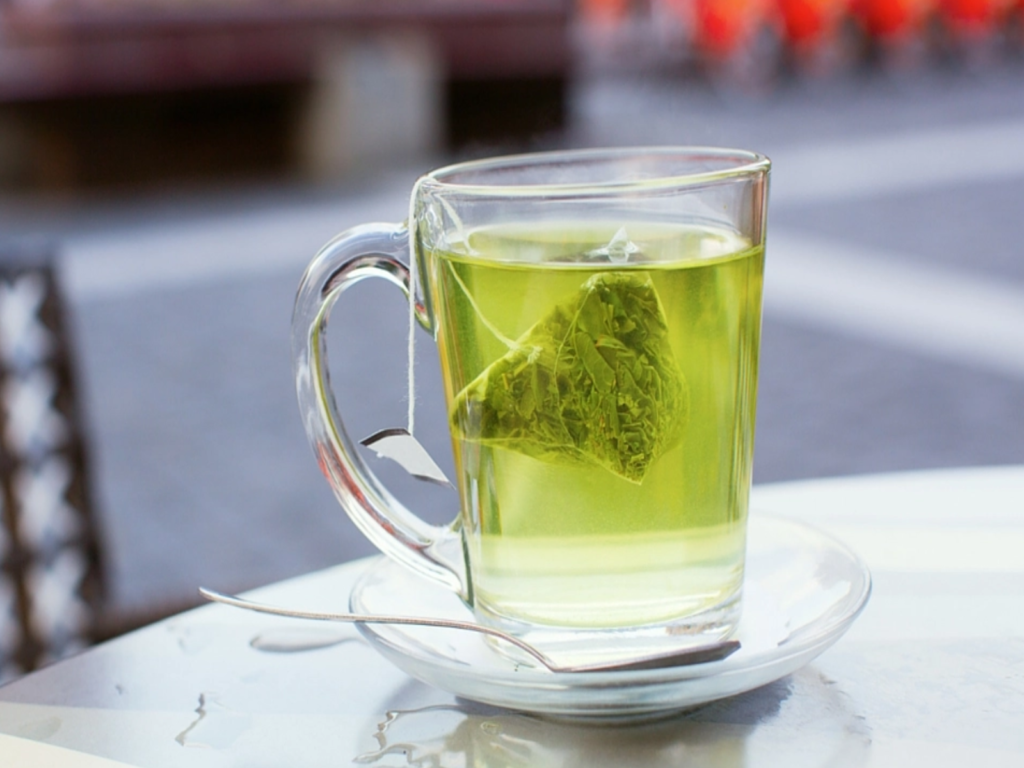One of the healthiest drinks in the world, green tea has been consumed for thousands of years, especially in East Asian nations like China and Japan. Green tea has gained popularity recently in the West, where it is regarded as a superfood with many health advantages. We will examine green tea’s dependable health advantages in this article.
Table of Contents

a source of antioxidants
Catechins, an antioxidant found in abundance in green tea, are thought to help shield cells from damage brought on by free radicals. Catechins are extremely powerful antioxidants that work to protect cells from oxidative stress and lower the risk of developing chronic illnesses like cancer, heart disease, and stroke.
increases mental function
Caffeine, a natural stimulant found in green tea, can help to enhance various aspects of brain health, including mood, alertness, and reaction time. L-theanine, another amino acid found in green tea, has been shown to help lower stress and anxiety levels, enhance cognitive function, and increase mental clarity.
assists in weight loss
Green tea is a great beverage for weight loss because it is known to increase fat burning and metabolism. Green tea’s active ingredients aid in the breakdown of fat cells, facilitating their easier oxidation for energy. The caffeine in green tea can also aid in reducing cravings for food and suppressing appetite.
decreases the chance of heart disease
Heart disease is the leading cause of death worldwide, and studies have shown that green tea can help lower the risk of developing it. Green tea contains antioxidants that can help lower cholesterol levels and stop LDL (bad) cholesterol from oxidizing, which can cause plaque to clog arteries.
lowers the likelihood of cancer
Green tea is a fantastic beverage for preventing cancer because it contains catechins, which have been shown to have anti-cancer properties. Breast, prostate, and colorectal cancer risks have all been found to be decreased by drinking green tea.
reduces the likelihood of type 2 diabetes
Green tea has been shown to improve insulin sensitivity and lower blood sugar levels, which may help lower the risk of type 2 diabetes. Green tea’s antioxidants can also aid in preventing cell deterioration brought on by high blood sugar levels.
encourages beautiful skin
Compounds found in green tea have been demonstrated to help improve skin health and lessen the effects of aging. The skin can be shielded from harm by UV rays, pollution, and other environmental factors thanks to the antioxidants in green tea. Green tea also has anti-inflammatory qualities that can help to lessen skin inflammation and redness.
How to make green tea at home ?
Millions of people drink green tea every day; it’s one of the healthiest drinks available. Antioxidants and other healthy compounds that can help to promote wellness and fend off chronic diseases are abundant in it. Here is a quick tutorial on how to make green tea at home if you want to start taking advantage of its health benefits.
Ingredients:
tea leaves, green (loose or in tea bags)
Warm water
Honey, lemon, or other flavorings are optional.
Instructions:
Pick out some premium green tea leaves first. Instead of broken leaves, seek out loose tea or tea bags that are made from whole leaves.
The right amount of water should be heated. Since green tea has a delicate flavor and beneficial compounds, boiling water can harm them. The ideal water temperature is between 160 and 180 °F (70 and 80 °C).
The green tea leaves should be measured. Typically, you’ll need one tea bag or one teaspoon of loose leaves per cup of water.
In a teapot or mug, add the green tea leaves or tea bag. To prevent the leaves from floating in the tea when using loose leaves, use a strainer.
Over the green tea leaves, pour the hot water. A quick or forceful pour can harm the flavor and beneficial compounds, so be careful not to do either.
Give the green tea one to three minutes to steep. The tea will become stronger and more bitter the longer it steeps. You can steep it for less time if you want a milder flavor.
Take out the tea bag or the green tea leaves. Before serving, strain the tea if you used loose leaves.
Green tea can be served hot or after it has cooled, over ice. To taste, you can add honey, lemon, or other flavors.
Tips:
To find your favorite green tea, try out various brands and varieties.
To keep green tea fresh, store it in an airtight container away from light and moisture.
Look for decaffeinated green tea if you are caffeine sensitive.
Avoid overstepping green tea because it might taste bitter.
To get the most health benefits from your green tea, consume it as part of an overall healthy diet.
To sum up, making green tea is simple and only requires a few quick steps. Green tea is a wonderful addition to any healthy diet due to its wealth of health advantages and mouthwatering flavor.
In conclusion, green tea is a superfood with a variety of established health advantages. Green tea is a fantastic beverage to include in your daily diet because it has many health benefits, including promoting healthy skin and lowering the risk of chronic illnesses like cancer, heart disease, and diabetes.
Disadvantages of using green tea
Even though green tea is well known for its many health advantages, there may also be some drawbacks to take into account. The following are some of the main drawbacks of drinking green tea:
Green tea contains caffeine, which may have negative effects like insomnia, jitters, restlessness, and upset stomach, especially if consumed in large doses or by those who are caffeine sensitive.
Medication interaction: Green tea may interfere with some prescription drugs, such as blood thinners, beta-blockers, and some antidepressants. If you are taking any medications, you must speak with a healthcare provider before consuming green tea.
There have been a few reports of liver damage linked to green tea extract supplements, though these cases are uncommon. These supplements have high catechin concentrations, which when consumed in excess can be harmful.
Not advised: Because it contains caffeine and other substances that may affect fetal development, green tea is not advised for use by pregnant or nursing women.
Green tea can stain teeth, especially if consumed frequently over an extended period of time. Using a straw or gargling with water after drinking green tea can help to lessen this effect.
Although green tea has many health advantages, it is not a panacea and should not be relied upon exclusively to treat or prevent illnesses.




